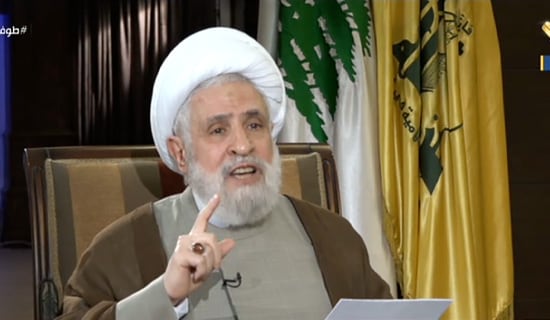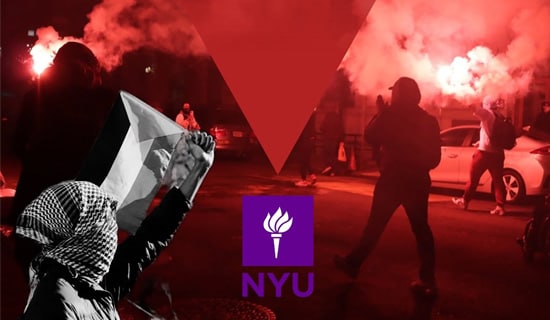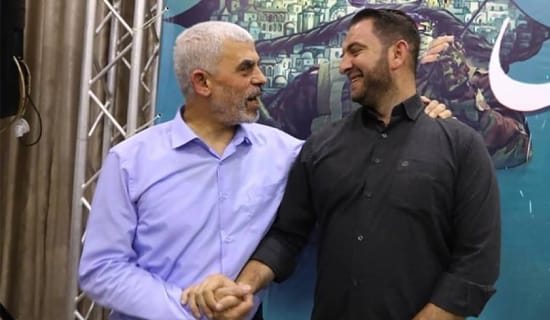Early this year, an Indian Muslim, Ajmal Khan, filed an appeal in the Supreme Court of India, challenging a decision of the Election Commission to publish electoral rolls with photographs of voters, including those of Muslim women. Khan's key argument was that publishing the photographs of Muslim women is against their religious belief and therefore it violated the religious freedom guaranteed to them by the Indian constitution. The appeal was part of occasional attempts by Indian Islamist groups to explore legal loopholes that could be utilized to enforce an orthodox interpretation of Islam among Muslims in India. This is especially important in India, where a citizen cannot cast vote without a voter photo ID card.
On January 23, the Supreme Court observed: "If you have such strong religious sentiments, and do not want to be seen by members of public, then do not go to vote. You cannot go with burqa [veil] to vote. It will create complications in identification of voters."[1] The court's argument was that the right to vote is a statutory right, not a fundamental right available under the Indian constitution. The court noted that photo ID cards are necessary for Muslim women to exercise their right to vote, saying: "[The] right to contest an election is an extension of the right to vote. Can anyone contest an election saying a photograph of her face [may] not be taken?"[2]
The Supreme Court's observation was criticized by various Islamic clerics in India. Maulana Ahmad Bukhari, the prayer leader of Delhi's historic Jama Masjid mosque, said: "The Indian constitution guarantees its citizens the right of freedom to religion, and this statement of the Supreme Court goes against it."[3] However, Maulana Khalid Rashid Firangimahali, another cleric and senior member of the advocacy group Muslim Personal Law Board, expressed a mixed view, noting: "Although Shari'a makes the veil mandatory for Muslim women, in certain circumstances it is permissible to get photographed... Muslim women can have their photographs taken for voter ID cards, as they do it to get a passport for going to Saudi Arabia for Hajj."[4]
In an article, titled "Each to Her Own," prominent Indian author Syeda Saiyidain Hameed, who is also a member of India's Planning Commission, examined if the Supreme Court observation regarding the Islamic veil and the necessity of having a photo ID card in order to vote and contest elections in fact conflicts with Islamic Shari'a. The article was published by The Indian Express newspaper and reproduced by a number of Muslim bloggers.
Following are excerpts from the article:[5]
"From My Study of the Koran, Its Explications, and Commentaries, I Find that There is Nothing in the Koran Which Enjoins Women to Cover Their Faces"
"In 1947, my mother and other women of my family decided to remove the burqa [Islamic veil]. They did it with the full support of male family members. These women were the best embodiments of the spirit of Islam. The five pillars of the Islamic faith were embedded in their lives. They prayed five times a day, fasted during the month of Ramadan, performed the [pilgrimage] Hajj, and never erred in giving certain part of their modest income in charity.
"The only thing they asked us so far as dress was concerned was to observe modesty. The underlying tenet of their faith was the Koranic injunction La Ikra Fid Din, meaning, 'there is no compulsion in religion.' I remember never being ordered to say my namaz [prayer]. It was of my own accord a few years after my mother died that I became a namazi [one who offers prayers] and continued to be one for the last 45 years. The women of my family influenced me by invoking the spirit of Islam which allows an individual to practise religion according to her own light.
SUPPORT OUR WORK

The Supreme Court Ruling Does Not Force Women to Violate the Koran
"In the context of my upbringing, when I examine the Supreme Court's observation on the burqa and voter ID cards, I find there is nothing inimical in it to the Koranic injunctions about a dress code for Muslim women. All it suggests is that in order to vote a Muslim woman like any other Indian citizen must be photographed in order to possess a valid voter ID. The matter came up last week when the Supreme Court was hearing a petition challenging the display of photographs of Muslim women on electoral rolls and voter identification cards. The petition was before a bench headed by the Chief Justice of India, Justice K. G. Balakrishnan. 'If you do not want them to have their photographs on electoral rolls, please tell what they should do if they want to contest elections, which is anyway only an extension of the right to vote,' the chief justice asked.
"Many Muslim groups have agreed with the sentiment and have given various arguments in favor of exceptional cases which warrant Muslim women to allow themselves to be photographed. From my study of the Koran, its explications, and commentaries, I find that there is nothing in the Koran which enjoins women to cover their faces with a naqab or hijab [i.e. veil].
"Let me quote Surah and verse. In the Koran, there are three references to dress code and none of them refers to the niqab, or veil. The first is the 24th Surah Al Nur, which means 'The Light.' In this, women are asked not to display their zeenat [beauty] except before family members. There is also an injunction for women and men to 'lower their gaze and protect their private parts.' The underlying idea is not to draw too much attention to their bodies. Tell the believing men to lower their gaze and be modest (Verse 30). Tell the believing women to lower their gaze and be modest (Verse 32).
"The important fact is that this ayat [verse] gives identical instruction to men as well in the 'hifazat' [safeguarding] of their private parts, which has been interpreted by scholars as 'dignified or modest dressing.' Further, women are asked to draw the veil over their bosoms; which does not mean covering their faces.
"The other reference is in Surah 33 Al Ahzab, which means the Clansmen. Here there are two references to women's dress. The first is Ayat 59 which enjoins the Prophet to tell all believing women to draw their cloaks around themselves so they are distinguished in a crowd and not harassed. The rationale for using the cloak (original word is jilbab, which in the Arabic dictionary means any piece of clothing from a chemise to a cloak) is diametrically opposed to the idea that women's identities should disappear inside burqas or naqabs.
"The second reference in the same Surah is the one and only reference to hijab, a word which is so used and misused today. Far from meaning covering women's faces as it is commonly understood today, it refers to the private space of an individual which needs to be protected and respected. The great commentator of the Koran, Al Tabari, refers to a hadith [a saying of the prophet narrated by]... Anas Ibn Malik, one of the Companions of the Prophet. The Surah was revealed on the Prophet's wedding night to Zainab Bint Jahsh. The wedding guests lingered on and on without regard for the Prophet's need for privacy. He then drew a hijab between his private quarter and the public domain. The delicacy of interpersonal relations and respect for privacy of families gave the words Minawara-e-Hijab (behind the curtain) which in turn gave coin age to the word hijab as it is used today.
"Maulana Abul Kalam Azad, the great Indian translator, commentator, and interpreter of the Koran, has asked the reader again and again to look for meanings by going to the fountainhead (Siraj-e-Munir) — that is, the Koran itself — instead of blindly following diktats of self-proclaimed experts. Because, he writes, Din [religion] is easy; it has been made complicated by centuries of facile erudition. That being the case there is nothing in the Koran and therefore Islam which mandates veiling; the choice to do it is entirely an individual choice. Therefore to attribute this to Islam is to negate its true spirit.
"The women of my family influenced me by invoking the spirit of Islam which allows an individual to practise religion according to her own light. When I examine the Supreme Court's observation on the burqa and voter ID cards, I find there is nothing inimical in it to the Koranic injunctions about a dress code for Muslim women."
[1] www.timesofindia.com, India, January 23, 2010.
[2] www.timesofindia.com, India, January 23, 2010.
[3] Roznama Rashtriya Sahara, India, January 24, 2010.
[4] Roznama Rashtriya Sahara, India, January 24, 2010.
[5] The Indian Express, India, January 27, 2010. The text of the article has been lightly edited for clarity.




